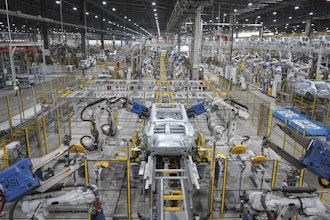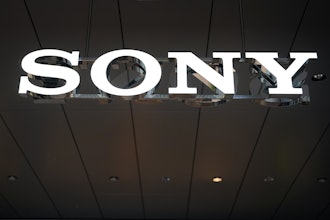
SEOUL, South Korea — South Korean companies announced Thursday plans to import more American shale gas and build new factories in the U.S. as the two countries' leaders prepare to hold summit talks in Washington where trade is expected to be a key issue.
The Korea Chamber of Commerce and Industry, South Korea's largest business association, said Thursday that major South Korean companies had proposed a slew of new investments ahead of President Moon Jae-in's meetings Friday with President Donald Trump.
South Korean businesses are highlighting investments and other plans that will help create jobs in the U.S. as the Asian country fends off criticism over a growing trade imbalance in its favor.
Electronics conglomerate Samsung Electronics said earlier this week it plans to spend $380 million to build a new home appliance factory in South Carolina. It also will spend $1.5 billion on its semiconductor plant in Texas. LG Electronics said it will put $250 million into building a new washing machine plant in Tennessee and $300 million on a new building in New Jersey.
SK Group signed a preliminary agreement with GE and Continental Resources earlier this week to jointly develop U.S. shale gas. The group, which owns South Korea's largest mobile carrier and the country's second-largest semiconductor company, said it will import American liquefied natural gas and liquefied petroleum gas starting in 2020 to help diversify its energy imports.
GS Group plans to start importing American shale gas worth $220 million for 20 years starting in 2019. Hanjin Group, parent company of flag carrier Korean Air Lines, said it plans to purchase 50 additional planes from Boeing over the next seven years.
The U.S. trade deficit with South Korea has nearly doubled since a bilateral trade agreement took effect in 2012, and Trump took aim at the trade deal while campaigning for president.
Total two-way trade totaled $144.6 billion last year, with the U.S. running a $17 billion deficit.
The White House official said Trump would call for the lifting of barriers to U.S. auto sales in South Korea and voice concern over steel exports from China that reach the U.S. via South Korea.






















